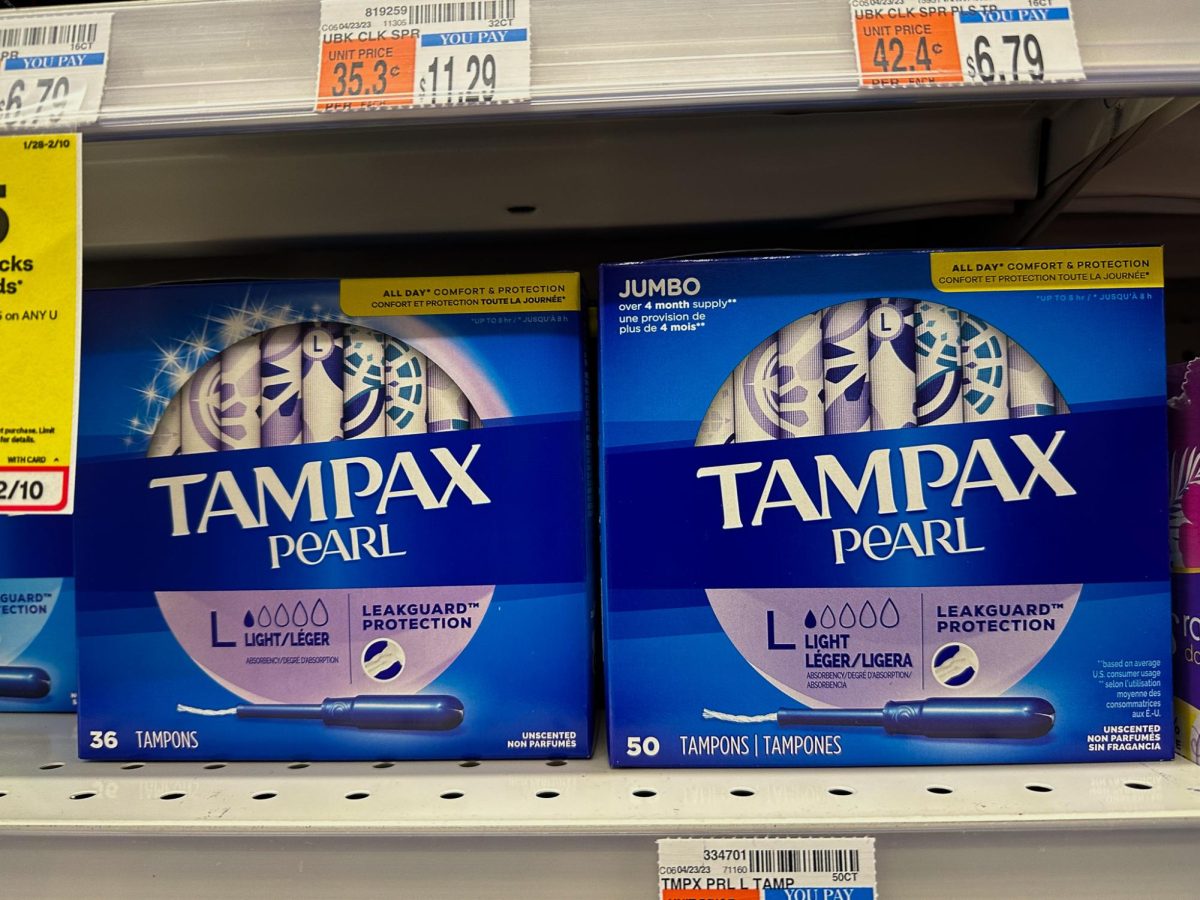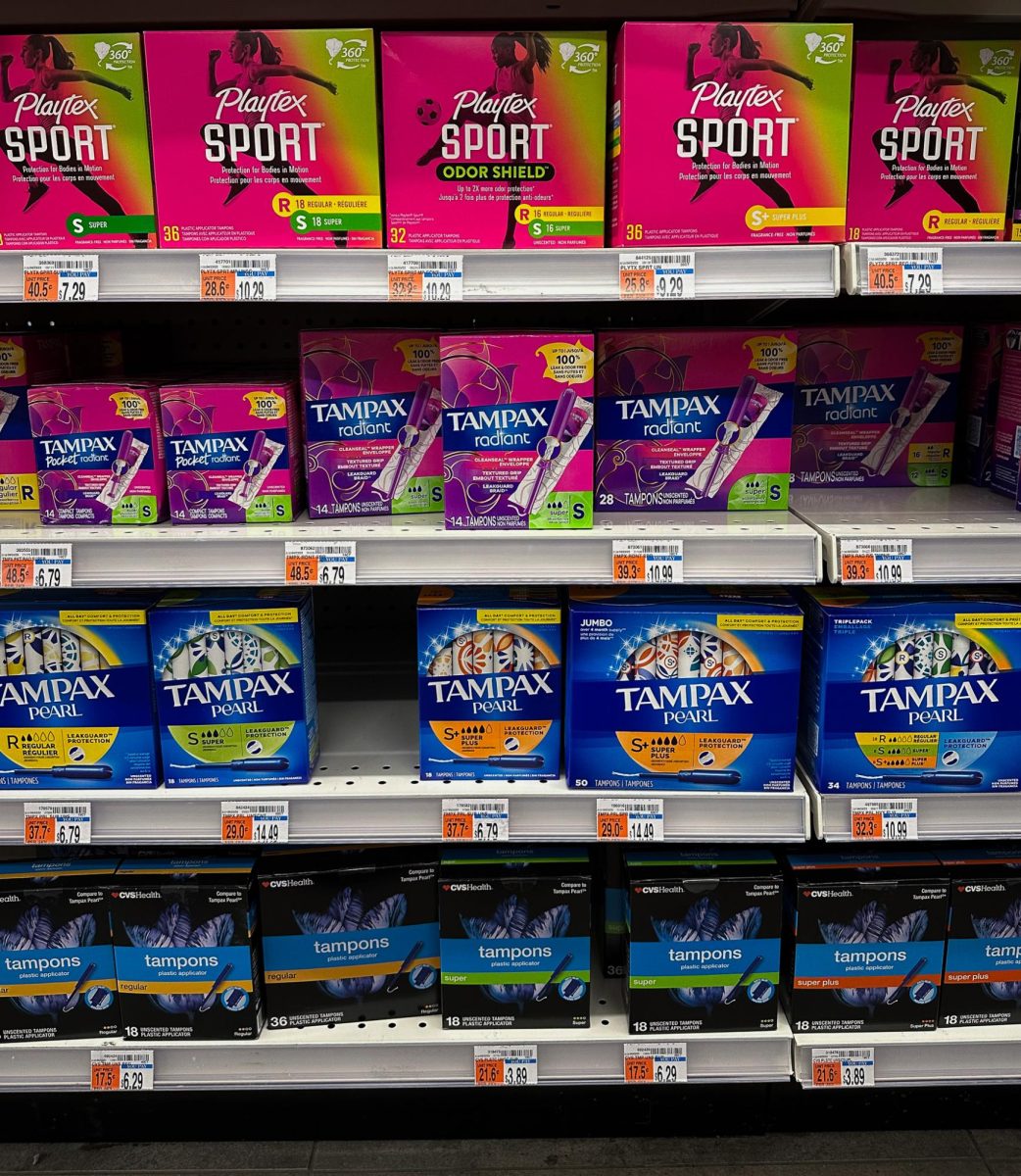16.9 million menstruators live in poverty in the United States. One-third of this low-income population are left to choose between menstrual products and food.
But something is being done to address the issue here in Massachusetts.
The I AM Bill, introduced in February 2023, would require free menstrual products in all public schools, prisons and homeless shelters in Massachusetts. It passed unanimously through the Senate Ways and Means Committee in September 2023 and is currently awaiting approval from the House Ways and Means Committee.
If this bill is passed, Massachusetts will make significant advances in achieving menstrual equity. However, it will allow each individual institution to decide what menstrual products to provide for its users, which can lead to institutions purchasing toxic and low-quality products for the vulnerable populations they serve.
Menstrual equity is defined as having free and safe access to menstrual products, which some of the most popular brand-name menstrual products do not provide. Popular brands such as Playtex, Always and Tampax contain harmful chemicals that are damaging to one’s reproductive health.
Many period products include chemicals that act as carcinogens, reproductive toxins and endocrine disruptors. This is important as the vulva and vagina have a high permeability, leading to a higher concentration of chemicals in uterine tissue compared to the rest of the body — a major health concern for users of toxic menstrual products.
The endocrine system regulates many biological processes, such as mood, growth and development, metabolism and reproduction. Perfluoroalkyl and poly-fluoroalkyl substances, or PFAS, are a class of human-made “forever chemicals” that appear in many menstrual products. PFAS are known to be endocrine receptors, ultimately disrupting the body’s natural hormone cycle and causing adverse effects on the endocrine system. PFAS have been linked to cancer, infertility, birth defects, endocrine system disruptions, liver function abnormalities and more.
Aside from PFAS, several other chemicals scientists say to watch out for in menstrual products include phthalates, volatile organic compounds and fragrance chemicals. Unsurprisingly, similar to PFAS, these compounds harm the endocrine and reproductive systems and can cause cancer.
Some menstrual products contain toxic metals, including lead and mercury, which can have an adverse effect on one’s brain. These metals influence brain aging and increase the risk of neurodegenerative diseases, such as Alzheimer’s disease. In addition, compounds m- and p-xylene, heptane and hexane have been detected in popular period products and are known for their neurotoxic effect on users.
Companies are responsible for funding these menstrual products through the I AM Bill, just as they do for other basic goods such as soap, toilet paper, etc.
Since individual companies are left to choose which menstrual products to provide, they may resort to cheaper, unsafe menstrual products to save money. Operations managers, superintendents and leadership roles get to decide which menstrual products they want to supply. These positions are primarily dominated by men who do not understand the needs of menstruators, leaving them to be overlooked.

As the I AM Bill is currently waiting in the House Ways and Means Committee, this is the perfect opportunity to increase education and advocacy on this issue.
Everyone, including men, should be educated on menstrual health starting at a young age. Incorporating this education into the school curriculum in elementary, middle and high school can help combat this issue.
As consumers, we have the power to choose which companies profit from menstruation. Boycotting brands with toxic chemicals will send a message to those companies that they need to eliminate the harmful substances in their products.
Supporting national bills such as the Robin Danielson Act, which will increase funding for studies investigating toxic chemicals in menstrual products, can also shed more light on this issue.
Before this bill is passed, at a more local level, calling and writing letters to Massachusetts prisons, homeless shelters and public schools to warn them about the harms of providing menstrual products that have these dangerous chemicals in them can also enact powerful change as it can bend the ear of the people in charge of the decisions that determine the quality of products people in their care will receive.
One may argue that with the I AM Bill, any products are better than no products, so why should we care about their quality? However, the low quality of these products comes at the great expense of one’s reproductive health, a price no menstruator should have to pay.
Everyone deserves the right to keep themselves healthy, and nobody should be supplied with menstrual products that could compromise their body.
Prachi Patel is a second-year behavioral neuroscience major. She can be reached at patel.prachi3@northeastern.edu.










